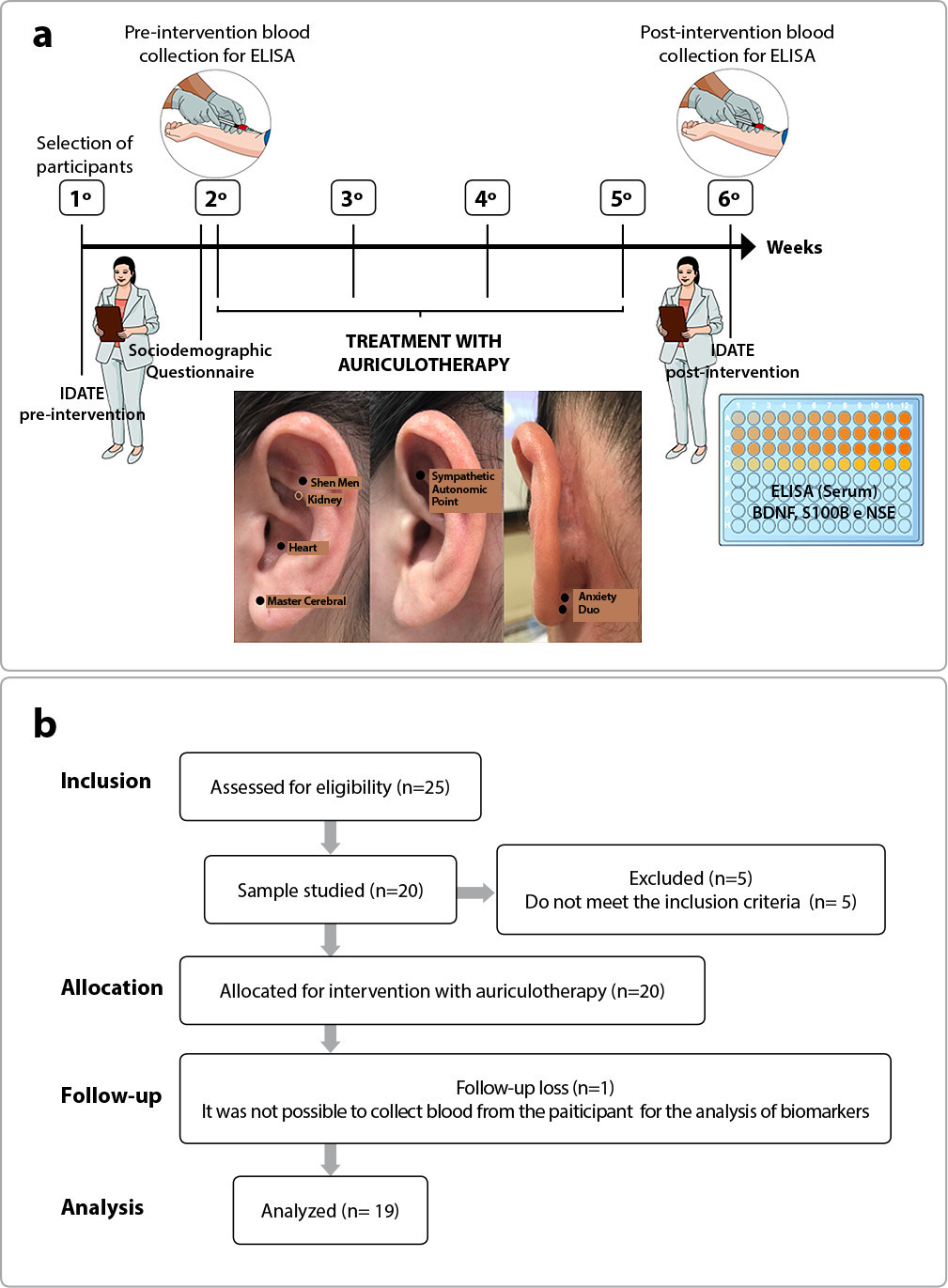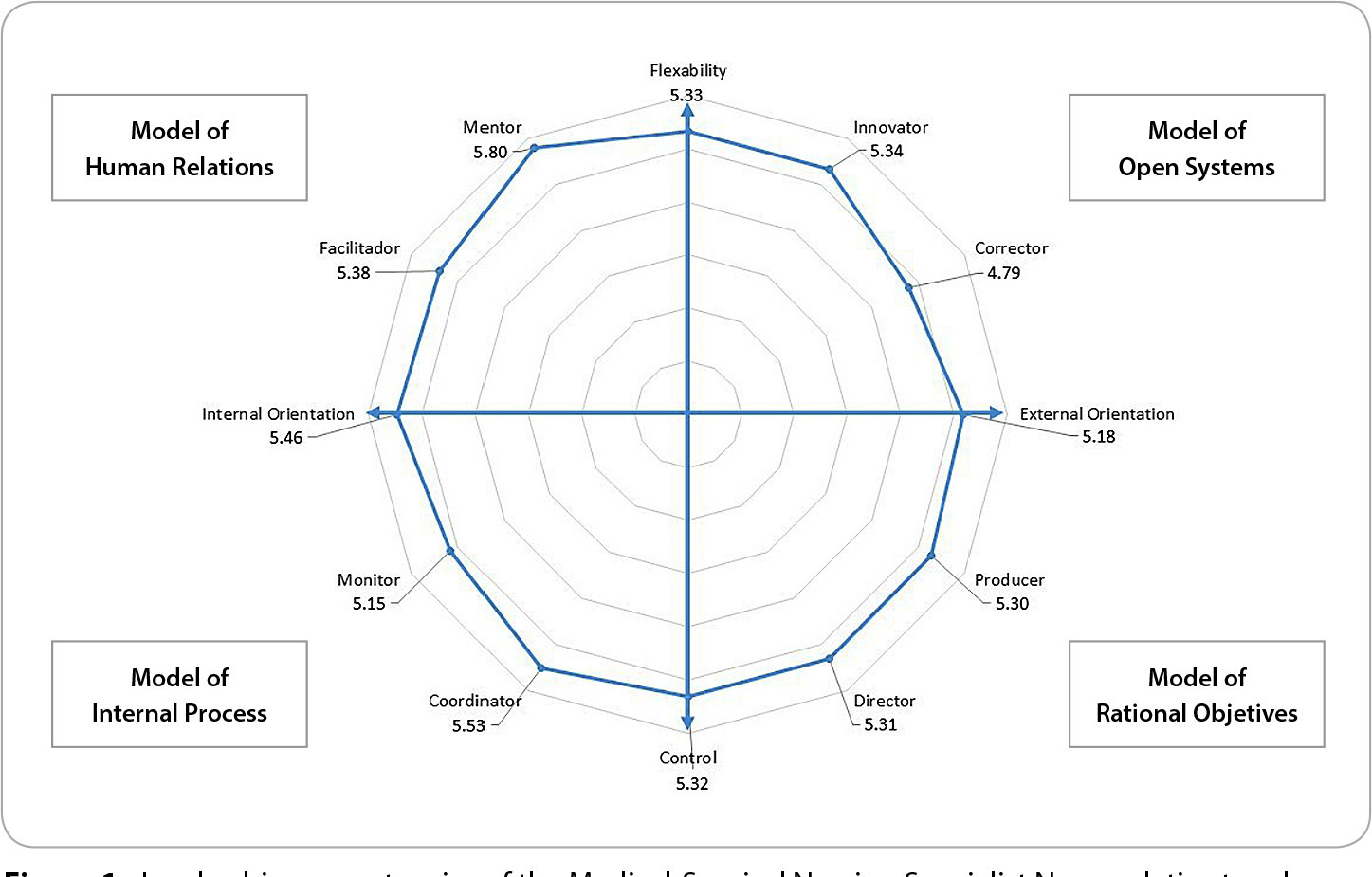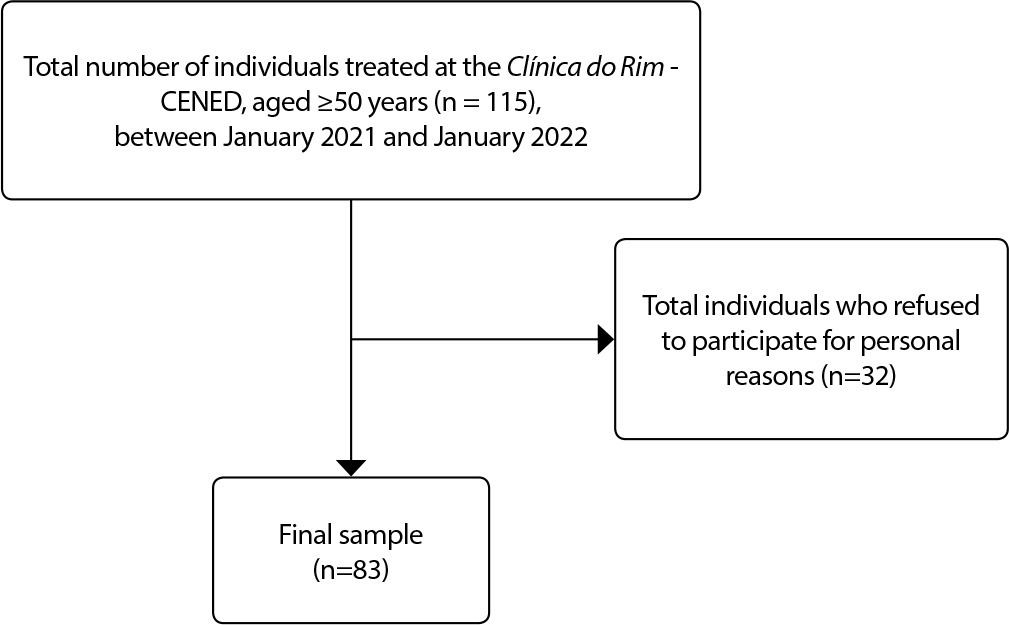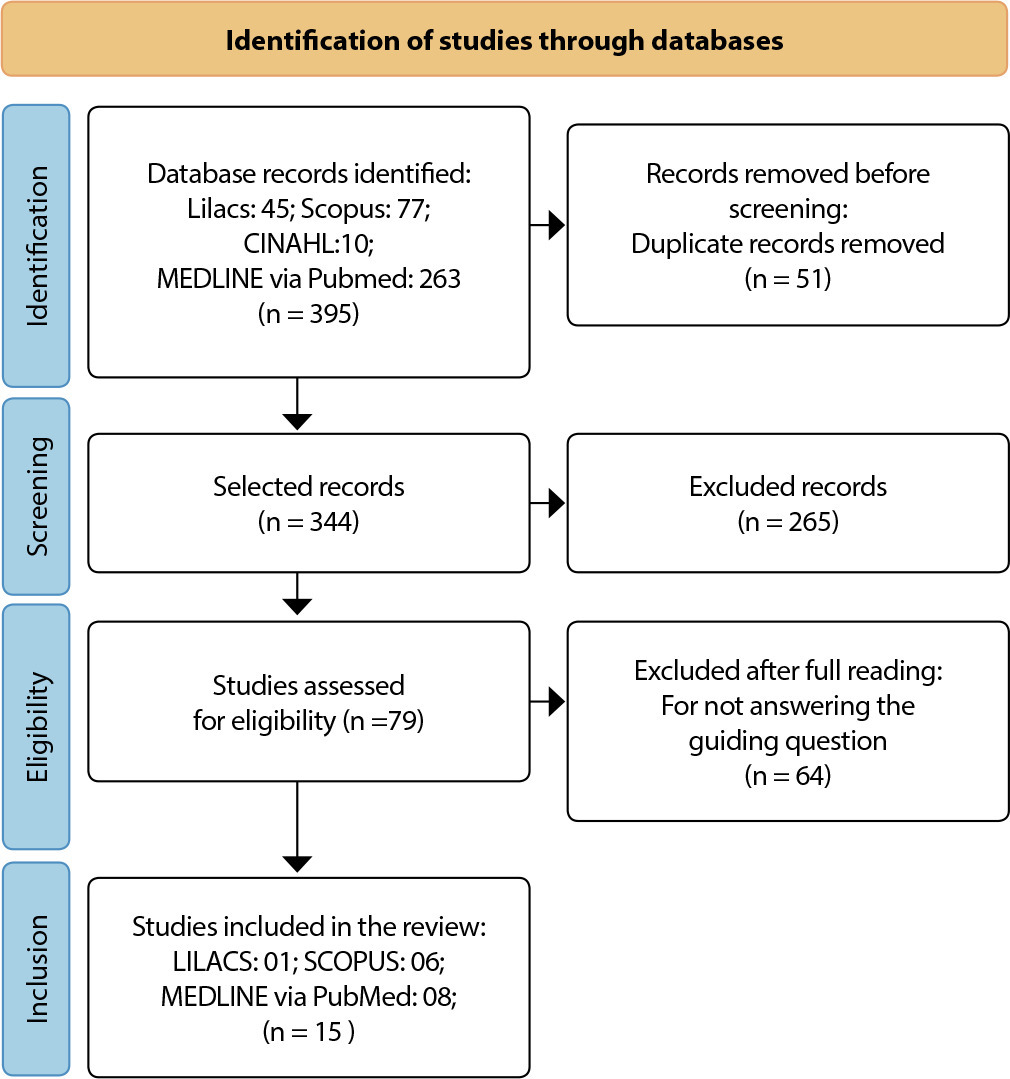-
12-04-2023
Maternal Concerns in Home Care for the Premature Newborn: An Integrative Review
Revista Brasileira de Enfermagem. 2023;76(6):e20220769
Abstract
Maternal Concerns in Home Care for the Premature Newborn: An Integrative Review
Revista Brasileira de Enfermagem. 2023;76(6):e20220769
DOI 10.1590/0034-7167-2022-0769
Views0See moreABSTRACT
Objective:
To identify and analyze the scientific literature, both national and international, concerning the primary maternal concerns about caring for premature newborns at home.
Methods:
This integrative review is based on the guiding question: “What scientific publications from 2012 to 2021 address maternal concerns about the care of premature newborns at home?”. Searches were conducted in the electronic databases: Embase, Medline, Web of Science, Lilacs, Scielo, and Cochrane Library.
Results:
A total of 21 articles were identified. The qualitative analysis showed that maternal concerns pertained to breastfeeding, hygiene, sunbathing practices, managing infant colic, identifying signs, symptoms, and clinical changes, temperature control, and the third phase of the kangaroo method.
Conclusions:
Maternal uncertainties underscore the importance of enhancing strategies focused on supporting families and ensuring continued care for neonates at home.

-
12-04-2023
Web App for prediction of hospitalisation in Intensive Care Unit by covid-19
Revista Brasileira de Enfermagem. 2023;76(6):e20220740
Abstract
Web App for prediction of hospitalisation in Intensive Care Unit by covid-19
Revista Brasileira de Enfermagem. 2023;76(6):e20220740
DOI 10.1590/0034-7167-2022-0740
Views0See moreABSTRACT
Objective:
To develop a Web App from a predictive model to estimate the risk of Intensive Care Unit (ICU) admission for patients with covid-19.
Methods:
An applied technological production research was carried out with the development of Streamlit using Python, considering the decision tree model that presented the best performance (AUC 0.668).
Results:
Based on the variables associated with Precision Nursing, Streamlit stratifies patients admitted to clinical units who are most likely to be admitted to the Intensive Care Unit, serving as a decision-making support tool for healthcare professionals.
Final considerations:
The performance of the model may have been influenced by the start of vaccination during the data collection period, however, the Web App via Streamlit proved to be a feasible tool for presenting research results, due to the ease of understanding by nurses and its potential for supporting clinical decision-making.

-
12-04-2023
Efeitos da auriculoterapia na ansiedade e biomarcadores na Atenção Primária à Saúde: um ensaio clínico
Revista Brasileira de Enfermagem. 2023;76(6):e20220728
Abstract
Efeitos da auriculoterapia na ansiedade e biomarcadores na Atenção Primária à Saúde: um ensaio clínico
Revista Brasileira de Enfermagem. 2023;76(6):e20220728
DOI 10.1590/0034-7167-2022-0728pt
Views0See moreRESUMEN
Objetivo:
evaluar los efectos de la auriculoterapia sobre la ansiedad y los niveles séricos de factor neurotrófico derivado de cerebro (BDNF), enolasa-específica de neurona (NSE) y proteína fijadora de calcio S100B (S100B) en adultos atendidos en Atención Primaria de Salud.
Métodos:
ensayo clínico piloto preexperimental. Se obtuvo información de 19 pacientes mediante el Inventario de Ansiedad Estado-Rasgo (STAI) y análisis de niveles séricos de BDNF, NSE y S100B.
Resultados:
la puntuación de ansiedad preintervención en el IDATE-Rasgo fue de 52,11±6,691 (CV 12,84%) y la valoración tras la auriculoterapia fue significativamente menor (43,72±8,141; CV 18,62%; P=0,0007). Los niveles de S100B se redujeron significativamente después de la auriculoterapia (de 64,03±72,18 a 54,03±68,53 pg/mL; CV 126,8%; P=0,0023).
Conclusión:
la auriculoterapia redujo efectivamente los niveles de ansiedad. Demostró ser seguro y fácil de aplicar, lo que permitió a las enfermeras realizar esta técnica de forma autónoma. También se evidenció una reducción de S100B, lo que demuestra una posible prevención del daño neuronal.
-
ORIGINAL ARTICLE12-04-2023
Effects of auriculotherapy on anxiety and biomarkers in Primary Health Care: a clinical trial
Revista Brasileira de Enfermagem. 2023;76(6):e20220728
Abstract
ORIGINAL ARTICLEEffects of auriculotherapy on anxiety and biomarkers in Primary Health Care: a clinical trial
Revista Brasileira de Enfermagem. 2023;76(6):e20220728
DOI 10.1590/0034-7167-2022-0728pt
Views0See moreABSTRACT
Objective:
to assess the effects of auriculotherapy on anxiety and brain-derived neurotrophic factor (BDNF), neuron-specific enolase (NSE) and S100 calcium-binding protein B (S100B) serum levels in adults assisted in Primary Health Care.
Methods:
a pre-experimental pilot clinical trial. Information was obtained from 19 patients using the State-Trait Anxiety Inventory (STAI) and analysis of BDNF, NSE and S100B serum levels.
Results:
the pre-intervention anxiety score in the IDATE-Trait was 52.11±6.691 (CV 12.84%) and the assessment after auriculotherapy was significantly lower (43.72±8.141; CV 18.62%; P=0.0007). S100B levels were significantly reduced after auriculotherapy (from 64.03±72.18 to 54.03±68.53 pg/mL; CV 126.8%; P=0.0023).
Conclusion:
auriculotherapy effectively reduced anxiety levels. It proved to be safe and easy to apply, allowing nurses to perform this technique autonomously. A reduction of S100B was also evidenced, demonstrating possible prevention of neuronal damage.

-
ORIGINAL ARTICLE12-04-2023
Leadership Competencies of the Medical-Surgical Nursing Specialist Nurse
Revista Brasileira de Enfermagem. 2023;76(6):e20220721
Abstract
ORIGINAL ARTICLELeadership Competencies of the Medical-Surgical Nursing Specialist Nurse
Revista Brasileira de Enfermagem. 2023;76(6):e20220721
DOI 10.1590/0034-7167-2022-0721
Views0See moreABSTRACT
Objective:
To identify the leadership competencies of Medical-Surgical Nursing Specialist Nurses.
Methods:
A quantitative, descriptive study using the Leadership Competencies Questionnaire. 311 Portuguese Medical-Surgical Nursing Specialist Nurses participated. Data analysis involved descriptive and inferential statistical analysis using the Statistical Package for Social Sciences (SPSS), version 22.0.
Results:
Study participants had an above-average self-perception on the scale (mean = 3.5) in all leadership roles, recognizing their leadership competencies. The leadership competencies of Medical-Surgical Nursing Specialist Nurses are balanced across all roles: Mentor (5.80 ± 1.02); Coordinator (5.53 ± 0.86); Facilitator (5.38 ± 1.04); Innovator (5.34 ± 0.88); Director (5.31 ± 1.10); Producer (5.30 ± 0.98); Monitor (5.15 ± 1.00); Corrector (4.79 ± 1.29)
Conclusions:
Specialized nursing practice enhances nurses’ self-perceived leadership competencies. Nurses see themselves as leaders focused on internal support and facilitation of collective effort and opportunities for skill development.

-
ORIGINAL ARTICLE12-04-2023
Assessment of the components of sarcopenia and quality of life perceived of individuals on hemodialysis
Revista Brasileira de Enfermagem. 2023;76(6):e20220677
Abstract
ORIGINAL ARTICLEAssessment of the components of sarcopenia and quality of life perceived of individuals on hemodialysis
Revista Brasileira de Enfermagem. 2023;76(6):e20220677
DOI 10.1590/0034-7167-2022-0677
Views1See moreABSTRACT
Objectives:
to evaluate the prevalence of sarcopenia in individuals aged 50 years or older on hemodialysis; to verify the association between sarcopenia and sociodemographic, clinical, anthropometric factors, components of sarcopenia and quality of life (QoL); and to correlate the components of sarcopenia with QoL.
Methods:
Participated 83 individuals on hemodialysis. Sarcopenia was established according to the current European consensus. Dynamometry to determine strength, calf circumference (CC) and appendicular skeletal muscle mass index (ASMMI) to obtain muscle mass and gait speed (GS) for physical performance. For QoL used the WHOQOL-bref.
Results:
the prevalence of sarcopenia was 32.6% (CC) and 18.1% (ASMMI). There was no association between sarcopenia and QoL. Both handgrip strength (r=0.25) and GS (r=0.36) showed a correlation with physical domain.
Conclusions:
sarcopenia was expressive, and the aspects of functionality determine the physical impairment in this population.

-
ORIGINAL ARTICLE12-04-2023
Construction and validation of an educational booklet for patients in the postoperative period of cardiac surgery: a methodological study
Revista Brasileira de Enfermagem. 2023;76(6):e20220621
Abstract
ORIGINAL ARTICLEConstruction and validation of an educational booklet for patients in the postoperative period of cardiac surgery: a methodological study
Revista Brasileira de Enfermagem. 2023;76(6):e20220621
DOI 10.1590/0034-7167-2022-0621
Views0See moreABSTRACT
Objective:
to construct and validate an educational booklet for self-care of patients in the postoperative period of cardiac surgery
Methods:
methodological study, including bibliographic survey, construction of the booklet and validation with judges and the target audience. For validation with judges, the Health Educational Content Validation Instrument was used, and with the target audience, an instrument was used with questions related to organization, writing style, appearance and motivation. To analyze the judges’ answers, the content validation index was used
Results:
the booklet was prepared with 14 topics. The content validation index among the eight judges was 1 and the concordance index among the ten patients was above 80%. The final version of the material was made available in printed format
Conclusion:
the educational booklet was developed and validated by judges and the target audience, serving as an educational support tool for self-care of patients in the postoperative period of cardiac surgery.
-
12-04-2023
Quality of care in peripheral venous catheterization: A scoping review
Revista Brasileira de Enfermagem. 2023;76(6):e20220578
Abstract
Quality of care in peripheral venous catheterization: A scoping review
Revista Brasileira de Enfermagem. 2023;76(6):e20220578
DOI 10.1590/0034-7167-2022-0578
Views0See moreABSTRACT
Objective:
To map the current status of parameters and tools to assess quality of care related to peripheral venous catheter use in adults.
Methods:
Scoping review, conducted in 2022 in the MEDLINE, LILACS, CINAHL and SCOPUS databases and with a publication time limit from 2013 to 2022.
Results:
The sample consisted of 15 articles, summarized in the following categories: Indication, documentation and registration, coverage assessment, connection, stabilization and signs and symptoms inherent to the catheter. The use of a complete instrument, with the domains observed in this review, may have a positive impact on a more effective and safe clinical practice.
Conclusions:
The present review mapped the evidence about the insertion and maintenance of peripheral venous catheters that can be improved with training of good practices and the quality of the team, regarding the use of tools, materials and instruments for the evaluation of care.

-
12-04-2023
A cronicidade e o seu impacto na saúde do trabalhador: uma chamada para ações concretas
Revista Brasileira de Enfermagem. 2023;76:e76suppl301
Abstract
A cronicidade e o seu impacto na saúde do trabalhador: uma chamada para ações concretas
Revista Brasileira de Enfermagem. 2023;76:e76suppl301
DOI 10.1590/0034-7167.202376suppl301pt
Views0A relação entre cronicidade e trabalho tem sido uma preocupação crescente na sociedade contemporânea. À medida que o número de doenças crônicas aumenta em todo o mundo, é fundamental compreender como essas condições impactam a saúde dos trabalhadores(). Neste editorial, exploraremos os impactos da cronicidade na saúde do trabalhador, destacando dados da Carga Global de […]See more -
12-04-2023
Chronicity and its impact on workers’ health: a call for concrete actions
Revista Brasileira de Enfermagem. 2023;76:e76suppl301
Abstract
Chronicity and its impact on workers’ health: a call for concrete actions
Revista Brasileira de Enfermagem. 2023;76:e76suppl301
DOI 10.1590/0034-7167.202376suppl301
Views0The relationship between chronicity and work has been a growing concern in contemporary society. As the number of chronic illnesses increases around the world, it is critical to understand how these conditions impact workers’ health(). In this editorial, we will explore the impacts of chronicity on workers’ health, highlighting data from the Global Burden of […]See more -
12-04-2023
General Law on Personal Data Protection and applicability to Nursing
Revista Brasileira de Enfermagem. 2023;76:e20230126
Abstract
General Law on Personal Data Protection and applicability to Nursing
Revista Brasileira de Enfermagem. 2023;76:e20230126
DOI 10.1590/0034-7167-2023-0126
Views0See moreABSTRACT
Objectives:
to reflect on the impacts of the General Personal Data Protection Law on Nursing practice.
Methods:
reflection article, through the intentional collection of materials relating to the topic.
Results:
legislation regulates confidentiality, processing and data sharing, requiring institutional protection measures. The nursing team is responsible for acting preventively, both in care and in the management role, in order to avoid the misuse of the patient’s personal data. The law allows academic research to be carried out as long as the purpose is clear, data collection occurs with an explicit purpose and data is anonymized.
Final Considerations:
although the General Personal Data Protection Law requires greater care in relation to data processing, it is established on precepts of good faith and respect for the rights of the individual, concepts aligned with the nursing code of ethics.

-
REVIEW12-04-2023
Supervision of professional nursing practice in Brazil: a scoping review
Revista Brasileira de Enfermagem. 2023;76:e20230077
Abstract
REVIEWSupervision of professional nursing practice in Brazil: a scoping review
Revista Brasileira de Enfermagem. 2023;76:e20230077
DOI 10.1590/0034-7167-2023-0077
Views0See moreABSTRACT
Objectives:
to map studies that analyze the audit process of nursing councils.
Methods:
this is a scoping review, anchored in the JBI framework, with the guiding question: what is the evidence of the audit process of legal practice of nursing by class councils (COFEN/COREN system)? The searches were carried out in October and November 2022 without limitation of language and year.
Results:
of the 9 selected studies, all are Brazilian and published from 2014 onwards. Among the topics addressed are the role, challenges, costs and difficulties in nurse auditors’ daily work process, in addition to the contribution of the audit sector in Brazil.
Conclusions:
the studies gathered discuss aspects related to costs, challenges and difficulties, but there is no focus on corrective, disciplinary and educational activities as well as little is said about the audit process, its reporting, referral and outcomes.

-
ORIGINAL ARTICLE12-04-2023
Overview of nursing ethics teaching in Brazilian public higher education institutions
Revista Brasileira de Enfermagem. 2023;76:e20220808
Abstract
ORIGINAL ARTICLEOverview of nursing ethics teaching in Brazilian public higher education institutions
Revista Brasileira de Enfermagem. 2023;76:e20220808
DOI 10.1590/0034-7167-2022-0808
Views0See moreABSTRACT
Objectives:
to outline the teaching of ethics in undergraduate Nursing programs in Brazilian public higher education institutions.
Methods:
descriptive and exploratory study, carried out through the documentary analysis of pedagogical projects of undergraduate Nursing programs in Brazil.
Results:
153 active undergraduate Nursing programs were found, of which 106 provide the pedagogical project. In addition to deontological teaching, the teaching of ethics was identified in a transversal way associated with themes such as Social Context, Hospital and Community Care, Pharmacology, Systematization of Nursing Care, Surgical Nursing, Epidemiology, Palliative Care, Management in Nursing, Diversity, Women’s, Children’s, Adolescent’s, Adult’s and Older People’s Health, and Mental Health.
Final Considerations:
the challenge in teaching nursing ethics is its integration with each action of caring, teaching and managing.

-
12-04-2023
La ética de la atención de enfermería a las personas transgénero
Revista Brasileira de Enfermagem. 2023;76:e20220797
Abstract
La ética de la atención de enfermería a las personas transgénero
Revista Brasileira de Enfermagem. 2023;76:e20220797
DOI 10.1590/0034-7167-2022-0797es
Views0See moreRESUMEN
Objetivos:
debatir sobre aspectos éticos en la atención de enfermería a personas transgénero.
Métodos:
estudio reflexivo fundamentado sobre los dilemas que se plantean en los cuidados de enfermería a personas transgénero. El relato se ha estructurado en torno a los cuatro principios bioéticos.
Resultados:
la atención sanitaria a las personas trans es compleja, transversal a muchos dispositivos y especialidades y longitudinal en el tiempo por lo que precisa de la actuación coordinada. Existe un marco ético en el que se encuadran los cuidados de enfermería que se precisan en la atención a este colectivo.
Consideraciones Finales:
la enfermera como agente de salud puede asumir diversas líneas generales en la atención a pacientes transgénero. Para ello, se debe brindar formación adicional no solo a los profesionales, también a los estudiantes de enfermería y de las demás ciencias de la salud.
-
12-04-2023
Ethical dilemmas at the end of life: a reflection from the Philosophical Perspective of Luigina Mortari
Revista Brasileira de Enfermagem. 2023;76:e20220759
Abstract
Ethical dilemmas at the end of life: a reflection from the Philosophical Perspective of Luigina Mortari
Revista Brasileira de Enfermagem. 2023;76:e20220759
DOI 10.1590/0034-7167-2022-0759
Views0See moreABSTRACT
Objectives:
to reflect on the ethical dilemmas involved in the care of patients at the end of their lives.
Methods:
this is a theoretical-reflective study based on the ethics of care proposed by Luigina Mortari.
Results:
discussing care involves addressing the ways of being inherent to human existence and understanding the unique characteristics of this condition. Ethical care constitutes an action driven by interest in the other and by the perception of their need. Ethical dilemmas are a part of end-of-life care, making it essential to maintain respectful assistance that considers the patient’s autonomy, using strategies for expressing their wishes, and ensuring continuous clear and empathetic communication among all those involved in providing care.
Final Considerations:
issues related to being, stemming from one’s reality of dependency and vulnerability, contribute to the emergence of ethical dilemmas present in care actions.
-
01-01-2016
Factors associated with inconsistent condom use among people living with HIV/Aids
Revista Brasileira de Enfermagem. 2016;69(1):47-53
Abstract
Factors associated with inconsistent condom use among people living with HIV/Aids
Revista Brasileira de Enfermagem. 2016;69(1):47-53
DOI 10.1590/0034-7167.2016690106i
Views0See moreABSTRACT
Objective:
to analyze the prevalence and factors associated with inconsistent use of condoms among people living with HIV/ Aids (PLWHA).
Method:
it is a cross-sectional study with 228, with individual interviews conducted in 2011. A multivariate analysis was performed with a logistic regression model.
Results:
143 participants met the inclusion criteria, and the prevalence of inconsistent condom use was 28.7%. However, there was greater adherence among men (79.3%). In the multivariate analysis, the independent variable daily use of alcohol (OR=11.02; 95% CI 1.84, 65.92; p = 0.021) was associated with inconsistent condom use. The chance of men making consistent condom use was higher than women (OR = 0.36, 95% CI 0.15, 0.81; p = 0.015).
Conclusion:
the prevalence of inconsistent condom male use among PLWHA was low, however, evidenced greater compliance among men over women with a statistically significant difference and the daily use of alcohol was associated with inconsistent condom use.
-
01-01-2016
Influence of sociodemographic and clinical characteristics at the impact of valvular heart disease
Revista Brasileira de Enfermagem. 2016;69(1):40-46
Abstract
Influence of sociodemographic and clinical characteristics at the impact of valvular heart disease
Revista Brasileira de Enfermagem. 2016;69(1):40-46
DOI 10.1590/0034-7167.2016690105i
Views0See moreABSTRACT
Objective:
to analyze the sociodemographic and clinical characteristics of patients with valvular heart disease and to verify the influence of these variables on the impact of valve disease in daily life.
Method:
the study involved 86 outpatients. Data collection was performed in two stages – face-to-face interview for sociodemographic and clinical characterization and through telephone contact for the application of the Instrument to Measure the Impact of Valvular Heart Disease on Patient’s Everyday Life (IDCV). Data were analyzed through descriptive statistics and multiple regression analysis.
Results:
it was noticed that the total score of IDCV and its domains were influenced by age, schooling, presence or absence of symptoms, use or not of diuretic.
Conclusion:
The impact of the disease was influenced by sociodemographic and clinical variables. The results provide subsidies for the design of nursing interventions aimed at reducing the impact of the disease on the patient’s daily life with valve disease.
-
01-01-2016
Health indicators of workers of the hospital area
Revista Brasileira de Enfermagem. 2016;69(1):30-39
Abstract
Health indicators of workers of the hospital area
Revista Brasileira de Enfermagem. 2016;69(1):30-39
DOI 10.1590/0034-7167.2016690104i
Views0See moreABSTRACT
Objective:
to analyze the health indicators of workers of hospital area for exposure to workloads, wear processes and its consequences.
Method:
a retrospective, descriptive and exploratory study performed in a hospital in southern Brazil. The population consisted of 1,050 workers notifications of registered in the Monitoring System of Nursing Workers Health, in 2011.
Results:
80.8% of the records were female workers, with 34.2% aged between 31 to 40 years old, corresponding to 2478 working lost days. The results subsidized the implementation of nine indicators that showed the prevalence of respiratory and osteoarticular problems.
Conclusion:
the results allow the reflection and redirection of actions for workers’ health, as the processes of becoming ill are compounded by exposure to psychic burdens. These indicators, when monitored, can contribute to the transformation of the profile of morbidity of these workers.
-
01-01-2016
Evaluation of environmentally sustainable actions in the medication process
Revista Brasileira de Enfermagem. 2016;69(1):23-29
Abstract
Evaluation of environmentally sustainable actions in the medication process
Revista Brasileira de Enfermagem. 2016;69(1):23-29
DOI 10.1590/0034-7167.2016690103i
Views0See moreABSTRACT
Objective:
to analyze sustainable actions from an environmental point of view in the medication process, from the reception of the prescription of the pharmacy to waste discard by nursing.
Method:
study before and after performed through Lean Six Sigma methodology. The sample consisted of the amount and type of waste resulting from the pharmacy and nursing services of a medical-surgical clinical unit.
Results:
after the intervention was obtained at the pharmacy a reduction of 74.8% of chemical, infectious and sharps waste, an increase of 33.3% of common recyclable and 20% of common non-recyclable. In nursing, there was a reduction of 22.5% of chemical, infectious and sharps waste, an increase of 22.9% of common recyclable and an increase of 20% of common non-recyclable.
Conclusion:
the practice of sustainable actions in the hospital is possible, contributing to the optimization of resources and waste production with benefits to the institution, environment, and health.

-
01-01-2016
Nursing education: training evaluation by graduates, employers and teachers
Revista Brasileira de Enfermagem. 2016;69(1):16-22
Abstract
Nursing education: training evaluation by graduates, employers and teachers
Revista Brasileira de Enfermagem. 2016;69(1):16-22
DOI 10.1590/0034-7167.2016690102i
Views0See moreABSTRACT
Objective:
to support the assessment and the necessary changes in the curriculum of an undergraduate degree in Nursing.
Methods:
it is a descriptive study developed in two stages as an action research. In the first stage, the speeches of 19 graduates and 15 employers were interviewed and analyzed; in the second stage, five teachers participated in the focus group. For processing the data, the content analysis was adopted.
Results:
based on the assessment of the actors, an action plan was created with suggestions regarding the curriculum flexibility, content resizing, continuing education, practice enhancement, active methodologies and autonomy of the student.
Conclusion:
the participation of actors participants of the training process and performance of professional nurses in the evaluation of a curriculum pointed aspects to realignment and provided concrete benefits to improving the quality of undergraduate course curriculum, scenario of this study.
-
01-01-2016
The challenge of the 67th Brazilian Conference of Nursing: In what direction is the Brazilian Nursing going?
Revista Brasileira de Enfermagem. 2016;69(1):7-9
Abstract
The challenge of the 67th Brazilian Conference of Nursing: In what direction is the Brazilian Nursing going?
Revista Brasileira de Enfermagem. 2016;69(1):7-9
DOI 10.1590/0034-7167.2016690101i
Views0Bringing together about 3,700 participants among conference participants, speakers, support staff, organizers and exhibitors, the 67th Brazilian Conference of Nursing extraordinary presented São Paulo with deep and meaningful reflections in an attempt to answer the question “In what direction is the Brazilian Nursing going?”.From the submission of the proposal to host the event until its […]See more -
01-01-2016
O desafio do 67º Congresso Brasileiro de Enfermagem: para onde caminha a Enfermagem brasileira?
Revista Brasileira de Enfermagem. 2016;69(1):7-9
Abstract
O desafio do 67º Congresso Brasileiro de Enfermagem: para onde caminha a Enfermagem brasileira?
Revista Brasileira de Enfermagem. 2016;69(1):7-9
DOI 10.1590/0034-7167.2016690101i
Views0Reunindo cerca de 3.700 participantes entre congressistas, palestrantes, equipe de apoio, organizadores e expositores, o 67º Congresso Brasileiro de Enfermagem agraciou São Paulo com reflexões profundas e significativas, na tentativa de dar sua resposta à questão “Para onde caminha a enfermagem brasileira?”.Desde a apresentação da proposta de sediar o evento até sua realização, o que […]See more -
06-01-2015
Anticipated directives and living will for terminal patients: an integrative review
Revista Brasileira de Enfermagem. 2015;68(3):524-534
Abstract
Anticipated directives and living will for terminal patients: an integrative review
Revista Brasileira de Enfermagem. 2015;68(3):524-534
DOI 10.1590/0034-7167.2015680321i
Views0See moreABSTRACT
Objective:
characterizing the national and international scientifi c literature about the advanced directives of living will as applied to the terminally ill patient.
Method:
integrative review considering the articles published in Portal Capes, SciELO, LILACS, MEDLINE, Journal of Bioethics and Bioethikos, with the descriptors: Advanced directives, Wills regarding life and Advance Directives, Living Will and Terminally Ill, totaling 44 articles submitted to content analysis.
Results:
three categories emerged: Students and professionals facing the advance directives of living will: Perceptions, opinions and practices; Patient’s receptivity to the Advance Directives of Living Will; The family facing the advance directives of living will.
Conclusion:
the relevance of the topic became evident as a guarantee of respect for the dignity and autonomy of the patient, as well as to reduce ethical confl icts faced by families and health professionals facing care at the end of life.
Search
Search in:
Nuvem de Tags
Adolescente (85) Atenção Primária à Saúde (239) COVID-19 (91) Criança (91) Cuidados de Enfermagem (269) Educação em Enfermagem (151) Educação em Saúde (139) Enfermagem (930) Enfermagem Pediátrica (86) Estudantes de Enfermagem (77) Estudos de Validação (131) Família (87) Idoso (208) Promoção da Saúde (99) Qualidade de Vida (104) Saúde do Trabalhador (86) Saúde Mental (145) Saúde Pública (82) Segurança do Paciente (150) Tecnologia Educacional (100)



